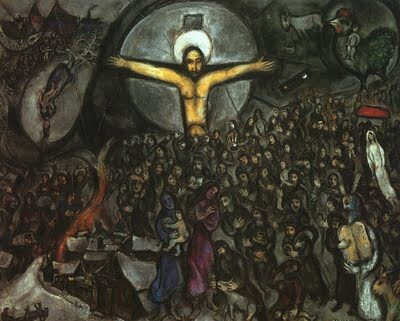Are There Any Indications That The Messiah
Will Suffer and or Die For Our Sin?
There will be a companion piece to this parsed essay that will be titled, “The Suffering Servant According to Isaiah” which will specifically deal with Isaiah ch. 53. In that essay I will provide pages worth of quotes from authoritative Rabbinic writings as well as the writings of Jewish scholars, that Isaiah 52:13-53:12 has, from ancient to modern times, been understood to be a Messianic text. Here I will present instances of the Messiah being called servant and described as a sufferer.
In this series I will consider the issue of the suffering servant, the suffering Messiah, more generally.
The Babylonian Talmud-Sanhedrin 99a states, “All the prophets prophesied only of the days of the Messiah.” This does two things for us: one is that it leaves a lot of room for speculation and two is that it makes rather difficult to draw out and tie together a proper Messianic doctrine. Judaism does not hold to one single Messianic concept but leaves a lot of room for possibilities-as evidenced in my post Jewish Messianic Concepts.
What then is the contention between the Jewish and Christian concepts of vicarious atonement? The whole sacrificial system that was given through Moses depends on vicarious atonement. However, the contention is that within the law; animals, fruits and grains were offered for the atonement of humans. Animals, fruits and grains-not other humans. Although, in the Old Testament there are instances of occurrences in which, while a human sacrifice was not made, we do find one person paying the price for the sins of another.
A couple of examples are when God said to Ezekiel,
“Then lie on your left side and put the sin of the house of Israel upon yourself. You are to bear their sin for the number of days you lie on your side. I have assigned you the same number of days as the years of their sin. So for 390 days you will bear the sin of the house of Israel. After you have finished this, lie down again, this time on your right side, and bear the sin of the house of Judah. I have assigned you 40 days, a day for each year” (Ezekiel 4:4-6). Also, the infant son of King David and Bethsheeva died due to the sin of his parents (see 2nd Samuel 11:14).
Perhaps the most clear and telling scripture that speaks prophetically of the fact that the Messiah would die for our sins is Isaiah 52:13-53:12. The ancient sages, the Rabbis of old, affirmed that this passage of scripture refers to the Messiah. The modernistic concept is that this passage refers to the nation of Israel is incorrect.
Consider this, if the passage refers to the nation of Israel then it may deny that Jesus is the Messiah. However, since a nation is a group of people then this passage is teaching that the suffering and death of the Jewish people will atone for sin and therefore, would affirming human vicarious atonement.
When John the Baptist saw Jesus he said, “Behold the Lamb of God who takes away the sin of the world” (John 1:29). This statement continues a long-standing tradition amongst God’s people and our Scripture of utilizing symbolism. The lamb that took sin away was the Passover lamb.The Lamb had to be unblemished, male, it was to be killed, eaten and not a bone of it was to be broken. At the very first Passover the lamb’s blood was to be smeared on the door post in order to mark the occupants of the home as saved, saved from the angel of death who would see the blood of the lamb and pass over that home.
Jesus was sinless (unblemished), male, he was killed during Passover and He instituted what is referred to as communion wherein we symbolically consume the Lamb of God.
Exodus 29:33 states, “They are to eat these offerings by which atonement was made for their ordination and consecration.”
Regarding the sin offering Leviticus 6:29 states, “Any male in a priest’s family may eat it; it is most holy.”
Leviticus 7:6-7 regarding the guilt offering states, “Any male in a priest’s family may eat it, but it must be eaten in a holy place; it is most holy.
The same law applies to both the sin offering and the guilt offering: They belong to the priest who makes atonement with them.”
Jesus’ bones were not broken (because He was already dead when the Romans came to take him off the cross). We are marked for salvation by his blood.
Referring to Jesus we are told, “Jesus Christ, who is the faithful witness, the firstborn from the dead, and the ruler of the kings of the earth. To him who loves us and has freed us from our sins by his blood, and has made us to be a kingdom and priests to serve his God and Father-to him be glory and power forever and ever! Amen” (Revelation 1:5-6). Believers, the kingdom of priests, are to eat that which made atonement for them.
Partaking of the Passover lamb was absolutely essential,
“But if a man who is ceremonially clean and not on a journey fails to celebrate the Passover, that person must be cut off from his people because he did not present the LORD’s offering at the appointed time. That man will bear the consequences of his sin” (Numbers 9:13).
Regarding Isaiah 53:5, Rabbi Elijah De Vidas (16th c.) stated,
“The meaning of ‘He was wounded for our transgressions, bruised for our iniquities,’ is, that since the Messiah bears our iniquities, which produce the effect of his being bruised, it follows that who so will not admit that the Messiah thus suffers for our iniquities must endure and suffer them for himself.”

